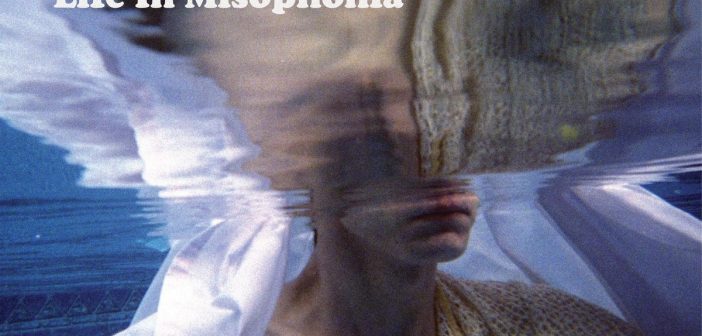By Annette Hansen
When Jonathan Diener started Baggage he’d already had a taste of life in the music industry. Having spent more than a decade drumming for The Swellers, Baggage was a chance for Diener to take on a new role as a frontman and create something entirely new. But going back to the beginning with a new project would bring its own set of rewards and challenges.
“It was relieving in the sense that for the first time it was one hundred percent on me to write the songs and fully express myself without having a companion songwriter,” Diener says. “The other flip of the coin is that was also the hard part because literally everything was on me this time.”
Aside from the freedom and stress of taking full creative control with Baggage, Diener found himself back at square one despite all the experience he’d built up during his time with The Swellers, “There was a big reality shock when we started playing shows and we realized that this isn’t an immediate crossover for people,” Diener explains. “You don’t just get to walk into something like that because it’s brand new.”
But with new beginnings also came the ability to explore new sounds. Having a musical background the punk community with The Swellers, Diener says there was a pressure to maintain a musicality that didn’t suit him or his bandmates any longer. With Baggage, Diener was able to take things in a new direction without being held back by what he called “punk rock guilt”.
“[The Swellers] started out when we were fourteen years old and we were playing like fast punk music,” Diener relays. “At the time we were obsessed with stuff from Epitaph Records and Fat Wreck Chords, so we just wanted to be fast punkers. Eventually, we were like ‘we like all of these other bands that don’t have fast punk beats, we don’t have to do that’, and once we started easing into that I feel like a lot of the people who got into us for the fast punk thing were really confused and it kind of left this really sour taste in people’s mouths.”
When Diener began to make music for Baggage he knew that he wanted to do things differently this time around, “[The Swellers] just felt the guilt of having to appease those people throughout our career, whereas with Baggage, again with a clean slate, there really were no expectations,” Diener says. “It was kind of the unfiltered version of the things we’ve always wanted to do.”
“One of my friends pointed out that our record is very honest and not necessarily in an uplifting way,” Diener says. “For me, I guess I have the luxury of being completely honest but having it benefit the songs. Everything from the vibe melodically to the lyrical content, I feel like I get to have that pure, unfiltered realness.”
And that honesty, Diener explains, is filled with nuance and an understanding that personal struggle isn’t so fatalistic, “I feel like there’s one of the lyrics on the record saying ‘you’re fetishizing sadness like I won’t understand it’, and it was actually from the show Bojack Horseman, which is one of my favorite shows ever, and that whole thing was talking about how there are some people that are just so obsessed with that single emotion that they go through in their daily lives, and my thing is I can acknowledge [that emotion]and show that it’s okay to show vulnerability and weakness, but I’m also not obsessed with trying to live in that,” Diener describes. “I think that’s sort of the main message with Baggage, where it’s sort of like ‘hey, you can be human, but you don’t have to just stay in this, you can work toward fixing things’.”
According to Diener, Life In Misophonia also puts an emphasis on leaving the past behind. Having gone through a number of changes professionally over the last few years, the album serves as a reflection of how Diener processed where he’s been and where he’s still headed.
“Being thrown into ‘okay, now you’re home for a full year, you work full time and you have to be an adult and have real responsibilities’ for the first time, it’s one of those jarring things,” Diener explains. “The other part of it is just understanding the perspective, for me it’s kind of being okay with the past being the past and not being obsessed with it, but more so have that be one of the chapters of my life and then adapting and evolving into what I have now.”
With everything Diener poured into Life In Misophonia, having this chapter become fully realized was powerful achievement. From ending one band to putting in the effort to build a whole new band and all the ups and downs in between, all of it played a part in influencing the album.
“To be completely honest, the first time that I heard the final song on the record, I told our producer ‘hey, I got to go to the bathroom really quick’ and I just started bawling but smiling while I was doing it because I can’t believe this is finally done,” Diener says. “It was a super intense emotional thing for me because for me to get to this point was probably one of the strangest times of my life and it wasn’t for the sake of having an exciting story about the record.”
For Diener, putting the album out into the world was a freeing experience, “I feel like the second it finally came out. It was this weird not only weight off my shoulders, but it was just that strange sense of like immediate therapeutic release like ‘okay, I don’t even care what happens at this point, the thing I was going through, this is the end of that chapter.”




